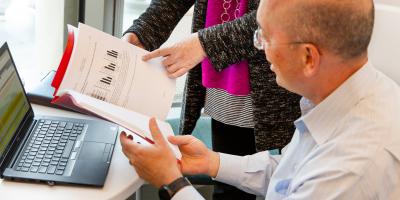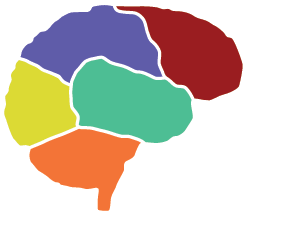

ARTFL: Advancing Research and Treatment for FrontoTemporal Lobar Degeneration
Dr. Boxer is the Principal investigator for the Advancing Research and Treatment for Frontotemporal Lobar Degeneration (ARTFL) Research Consortium, an NIH-funded Rare Disease Network Clinical Research Network consisting of 18 sites that evaluate participants. ARTFL studies both sporadic and genetic forms of frontotemporal lobar degeneration (FTLD), including behavioral variant FTD (bvFTD), primary progressive aphasia (PPA; both semantic and agrammatic variants), corticobasal syndrome (CBS/CBD), and progressive supranuclear palsy (PSP). Additionally, ARTFL enrolls healthy participants who have a strong family history of FTLD syndromes, with or without a known genetic basis. More information is available on the Rare Disease Network website.
UCSF is the lead site for the Advancing Research and Treatment for Frontotemporal Lobar Degeneration (ARTFL) Research Consortium. ARTFL is an NIH-funded Rare Disease Network Clinical Research Network.
ARTFL is an observational study examining thinking, behavior, and movement problems in patients with Frontotemporal Dementia (FTD) or other frontotemporal lobar degeneration (FTLD) syndromes. ARTFL also studies healthy, at-risk, family members of patients with FTLD syndromes that may arise from genetic causes.
Frontotemporal Lobar Degeneration (FTLD) is the neuropathological term for a related group of rare neurodegenerative disorders that cause a variety of impairments in social function and personality, cognitive ability, language, and motor function. In most cases, this disease begins when a person is in their 40s-60s. The prevalence of the behavioral and cognitive syndromes is approximately 15-22 per 100,000; the most common motor syndrome has a prevalence of 6.4 per 100,000 in the US. All FTLD disorders are regularly fatal and generally lead to death within 10 years of diagnosis, sometimes much faster. There are no effective treatments for any FTLD disorder, and it is hard to accurately diagnose or potentially measure the effectiveness of new therapies.
Research on the different FTLD disorders traditionally has been performed either by behavioral neurologists who focus on behavior, cognition and language or by movement disorder neurologists who focus on movement abnormalities. There is a growing agreement that research needs to incorporate both to successfully develop effective therapies. The ARTFL consortium brings together leading behavioral and movement disorder researchers in North America to focus on studies that enable research for FTLD.
ARTFL is an observational study of about 1500 individuals with FTLD syndromes. If you participate in this study, you will have an evaluation of your memory and thinking skills and have a physical examination by a neurologist. You and your study partner will complete some questionnaires. You will be asked to have a sample of blood drawn, and you may be asked to participate in magnetic resonance imaging (MRI) of the brain or lumbar punctures for cerebrospinal fluid. The study staff may look at your medical records so that we can collect information about your medical history. Participation in the study will take a total of about 8 hours over the course of a day or may be split into two to three days. If FTLD runs in your family, you may be asked to return in one year for a follow-up visit where many of the assessments you completed during your first study visit will be repeated.
Targeted Enrollment
To be eligible to participate, you must:
- Must have one of the following syndromes:
- behavioral variant frontotemporal dementia (bvFTD)
- primary progressive aphasia (PPA)
- semantic variant primary progressive aphasia (svPPA)
- nonfluent variant primary progressive aphasia (nfvPPA)
- frontotemporal dementia with amyotrophic lateral sclerosis (FTD/ALS)
- amyotrophic lateral sclerosis alone
- corticobasal syndrome (CBS)
- progressive supranuclear palsy (PSP)
- variant PSP (vPSP)
- OR have a strong family history of FTLD syndromes
- Between 18 and 85 (inclusive) years of age
- Be able to walk (with assistance) at the time of enrollment
- Have a reliable study partner who can provide an independent evaluation of functioning
You are not eligible to participate if:
- You have a structural brain lesion (e.g. tumor) that could reasonably explain symptoms and don’t have a known familial genetic FTLD-causing mutation.
- You have an Alzheimer’s disease causing mutation in PSEN1, PSEN2 or APP; or neuropathological evidence for Alzheimer’s disease as a cause of syndrome (from brain biopsy).
- You have a previous history of Korsakoff encephalopathy, severe alcohol dependence (within 5 years of onset of dementia), frequent alcohol or other substance intoxication, or other neurological disorder (such as multiple sclerosis).
- You have conditions such as B12 deficiency, hypothyroidism, HIV positive, renal failure, liver failure, respiratory failure (requiring oxygen), extra-axial brain tumor, large cerebral infarct that could account for clinical syndrome, large confluent white matter lesions (grades 3 or 4), or significant systemic medical illnesses such as deteriorating cardiovascular disease.